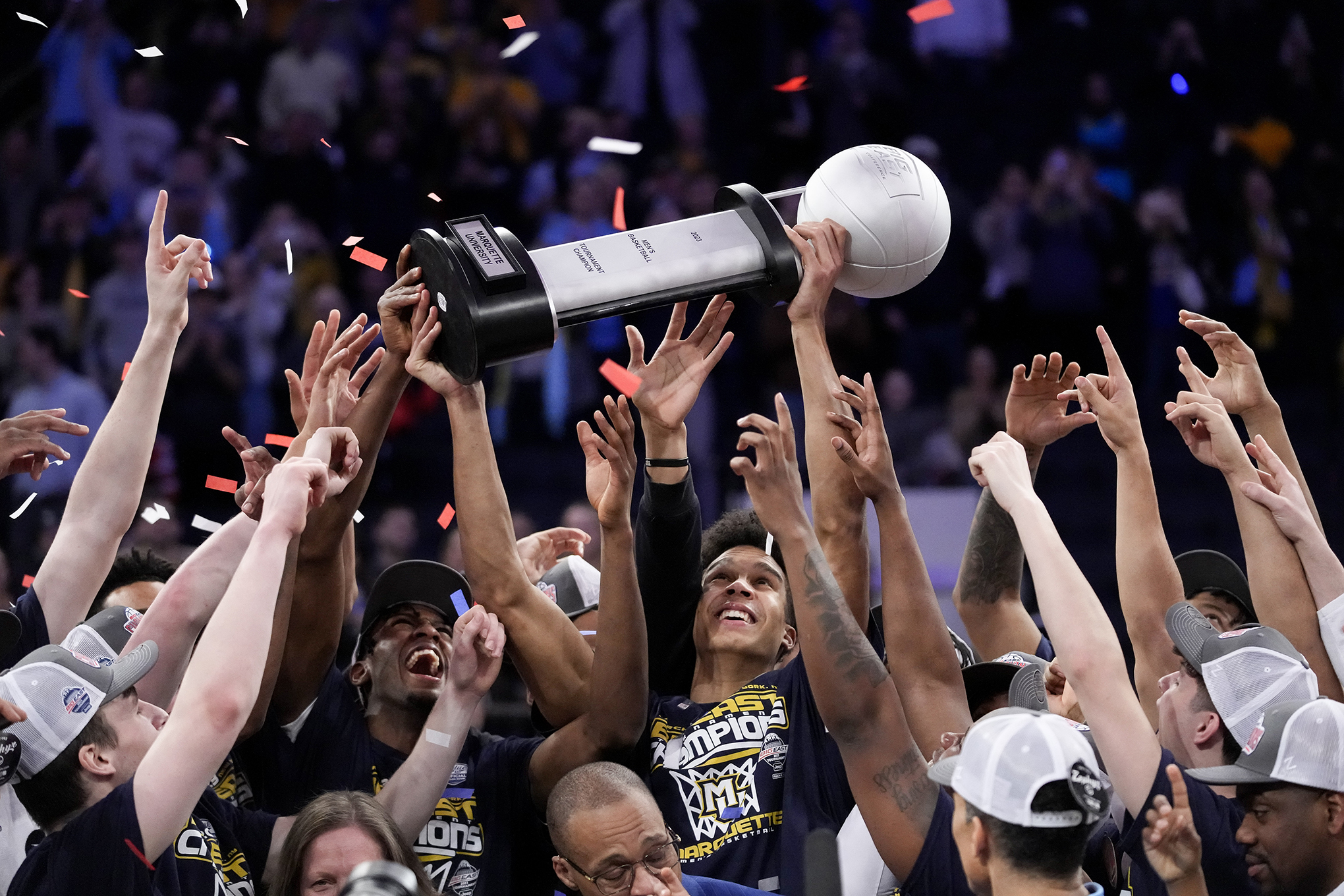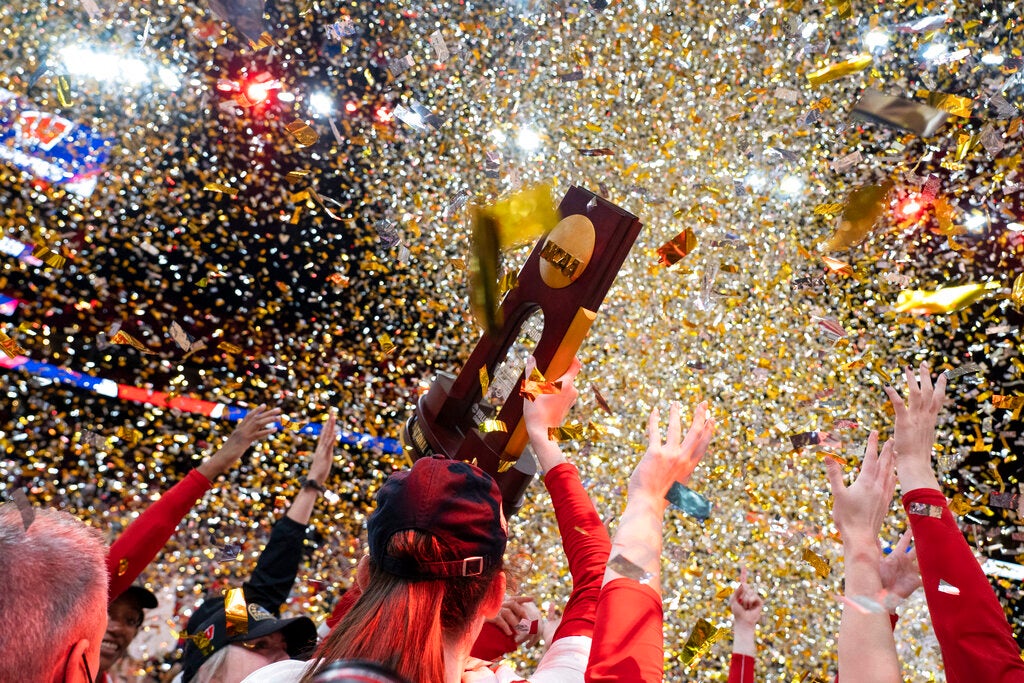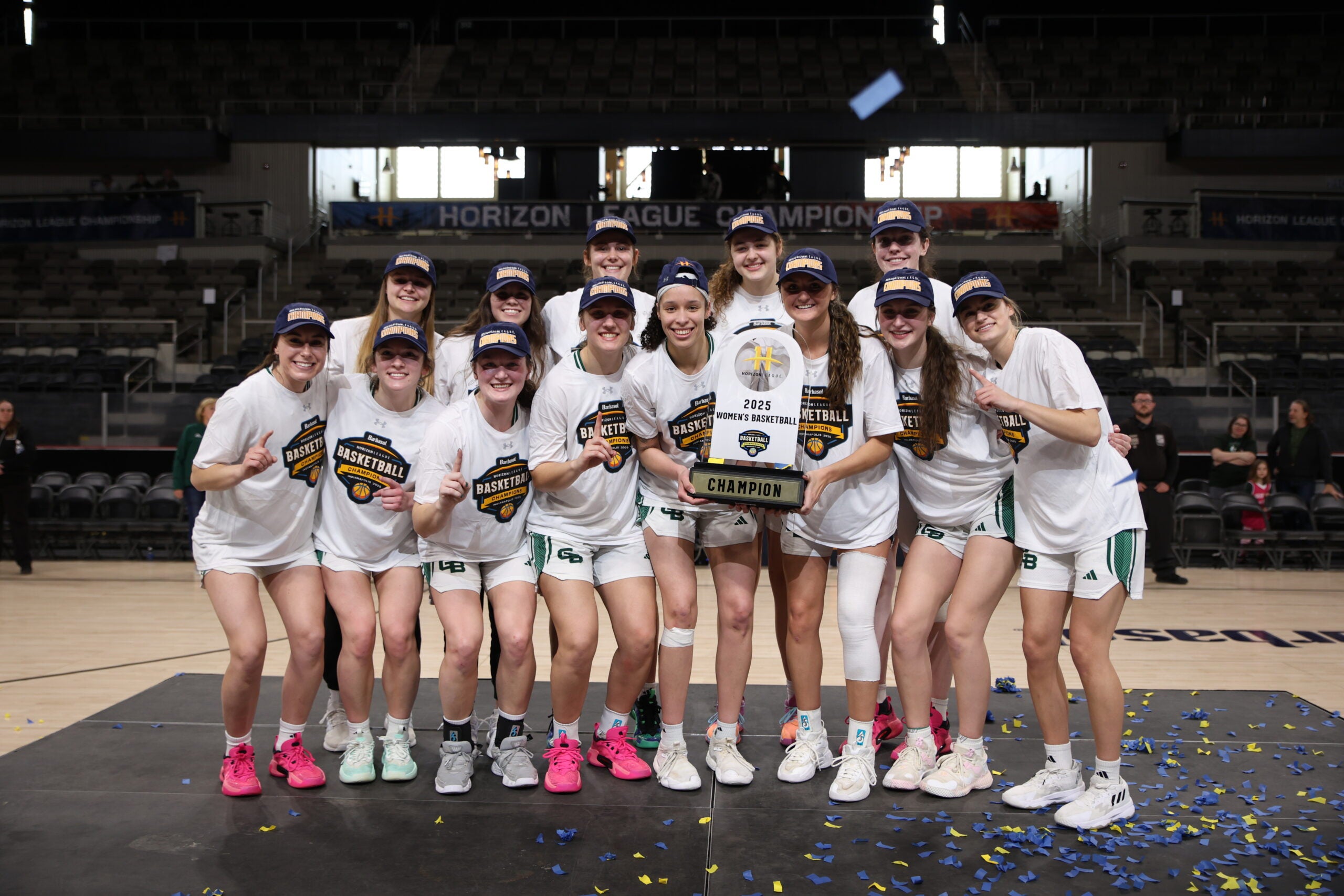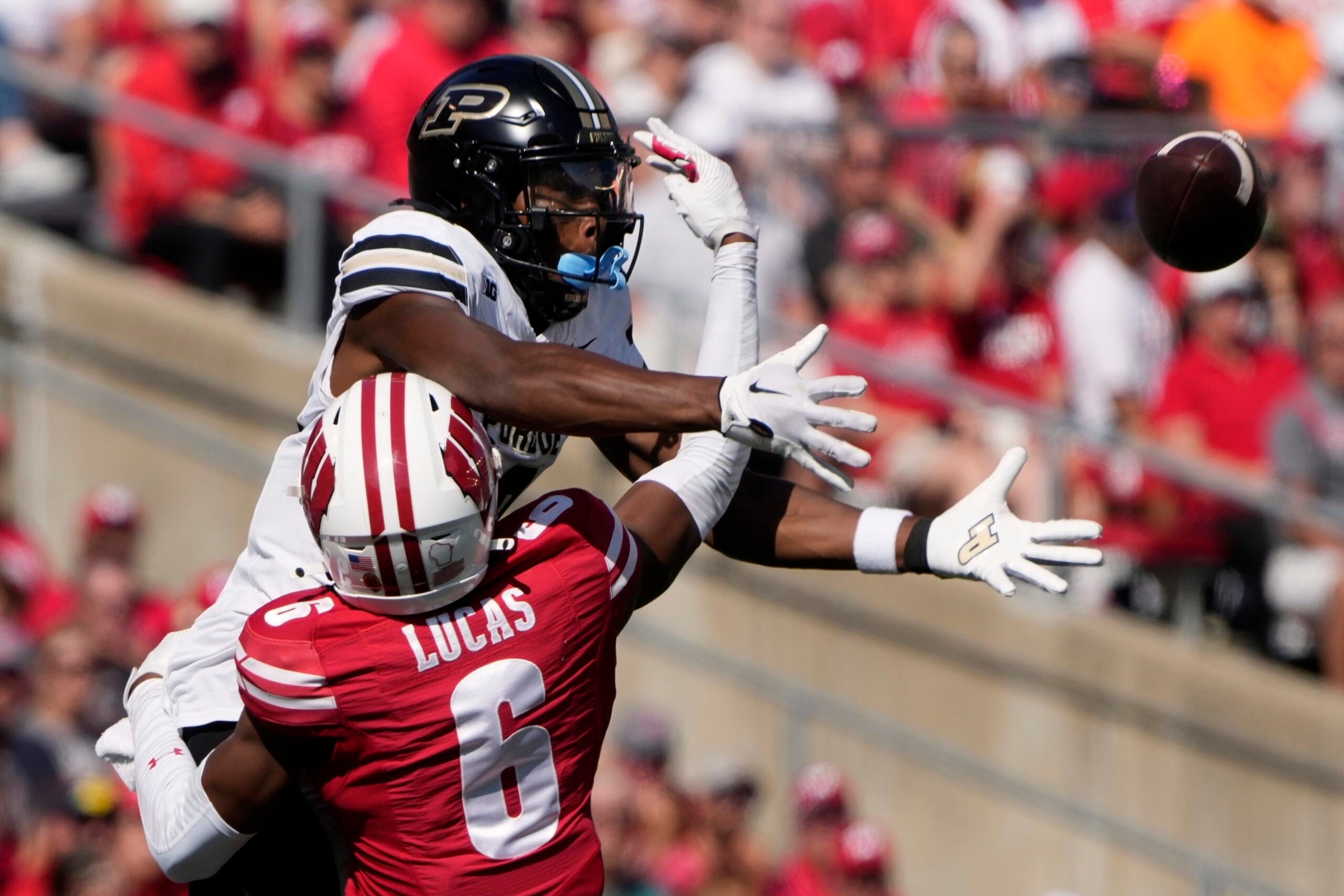The NCAA and its Power Five conferences recently agreed to an antitrust settlement that would allow colleges to pay student athletes directly. But it’s still unclear how schools in those conferences, including the University of Wisconsin-Madison, will implement the new framework.
Parties in the House v. NCAA class-action lawsuit announced the terms of the settlement last Thursday, saying it resolves three pending lawsuits against the collegiate athletics association. The settlement still needs to be approved by a federal judge.
It would provide $2.75 billion in damages over a 10-year period to former college athletes. It also eliminates NCAA rules that prohibit direct payments from schools to students on college teams. Each school would be able to share more than an estimated $20 million per year with athletes playing any Division I sport.
Stay informed on the latest news
Sign up for WPR’s email newsletter.
The five conferences that joined the NCAA in agreeing to the settlement terms include the ACC, the Big 10, the Big 12, the Pac-12 and the SEC. The Wisconsin Badgers are in the Big 10. UW-Madison Athletics has declined to comment on the settlement agreement at this time.
In a joint statement, leaders from the NCAA and the conferences called the settlement an “important step in the continuing reform of college sports.”
“All of Division I made today’s progress possible, and we all have work to do to implement the terms of the agreement as the legal process continues,” the statement reads. “We look forward to working with our various student-athlete leadership groups to write the next chapter of college sports.”
Matthew Mitten, the head of the National Sports Law Institute at Marquette University Law School, spoke to WPR’s “Wisconsin Today” on Friday about the implications for both college sports and student athletes.
Mitten called the settlement’s framework for paying athletes a “seismic change” in college sports, but said there’s still big questions that need to be answered about how it will work.
“Is it going to be just athletes in certain sports? It can’t be just male athletes who will get a share of the revenues because of Title IX, which requires gender equity,” He said. “What about the Olympic sports, like wrestling (and) gymnastics? Are those going to be eliminated?”
Mitten also said he had concerns around competitive balance between Division I programs. For example, he said UW-Madison is able to generate more athletic revenues than Marquette because Madison gets revenue from media contracts to broadcast football games.
Marquette doesn’t have a football team, but competes against UW-Madison in men’s and women’s basketball, as well as other sports, Mitten said.
“They’re going to be able to offer, potentially, both the top men’s and women’s basketball players in the state more on an annual basis than Marquette can,” he said.

Marquette Athletics did not immediately respond to a request for comment.
Beyond concerns about competition, Mitten said there’s also equity concerns around the pay in both men’s and women’s collegiate sports. He said men’s basketball traditionally generates more money from media contract’s than women’s basketball, which has been growing in popularity.
“You’ve got a real equity issue,” he said, “if you say, ‘okay, collectively, we’re paying our 15 men’s basketball players, let’s say $3.5 million.’ How do you justify paying the 15 female basketball players less?”
“(It’s) probably not as much of a concern if you have a football player getting more than let’s say male wrestler, because there you might be able to justify it (as) football generates more revenue than wrestling, for example,” he added.
At the same time, Mitten said some schools may discontinue intercollegiate sports programs that don’t generate enough money to pay for themselves.
“I would hate to see it go to just schools keeping the revenue-generating sports, enough female sports to comply with Title IX and then move others to a club sport model,” he said.
If the settlement gets approved by a judge, Mitten said it will likely be appealed and it could eventually make its way to the U.S. Supreme Court.
Wisconsin Public Radio, © Copyright 2025, Board of Regents of the University of Wisconsin System and Wisconsin Educational Communications Board.


